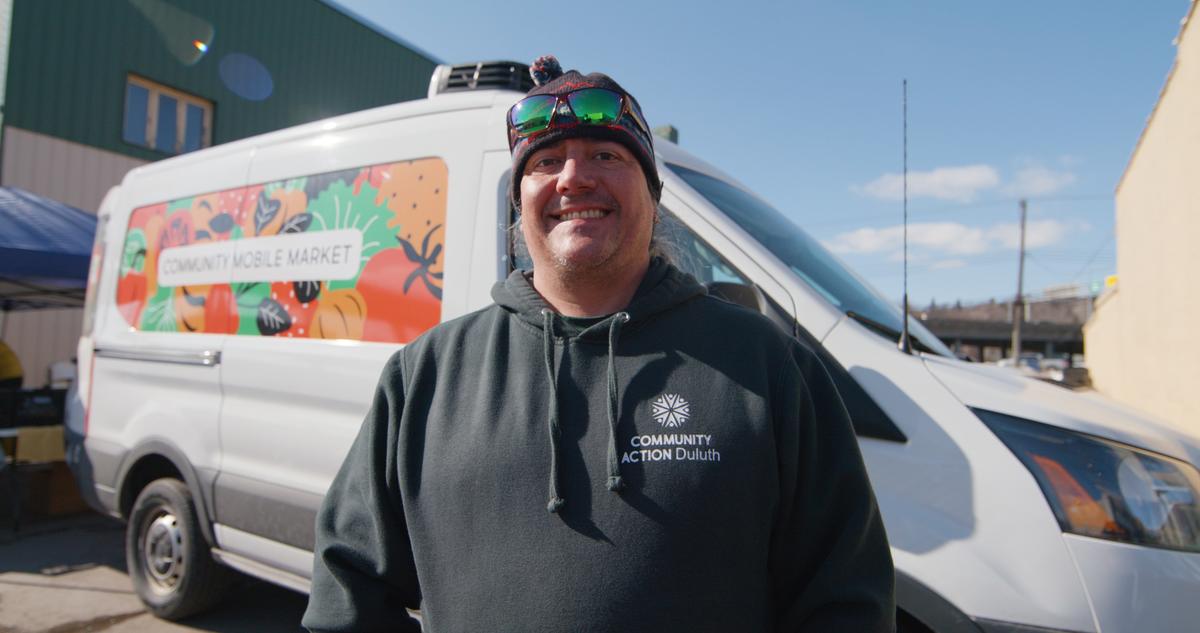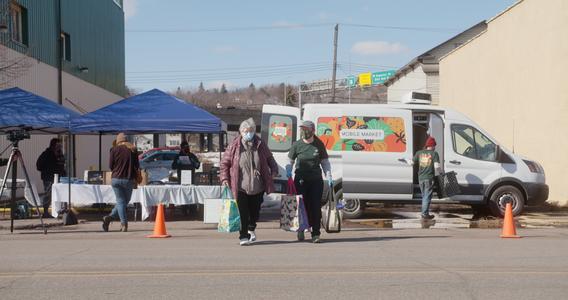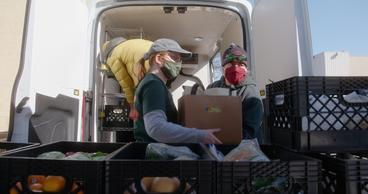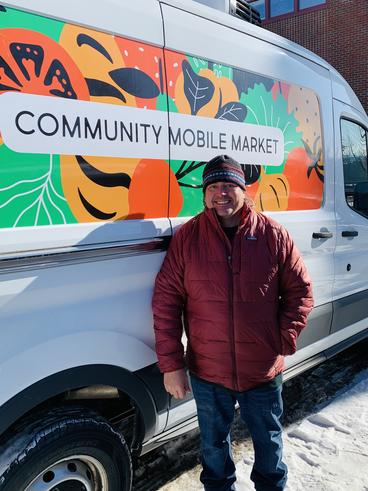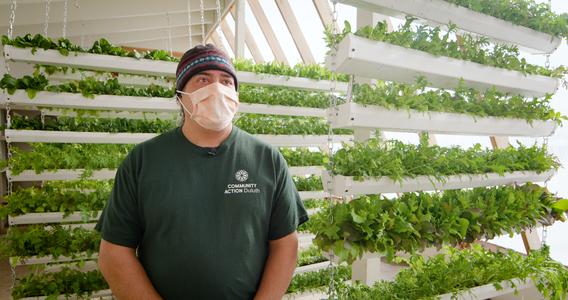In the first year of his UMD Master of Social Work program, Karl Becker started translating his social work classes into concrete action. Now in year two, he’s helping to drive an effort to bring healthy food to Duluth’s food deserts.
Becker became acutely aware of local food accessibility issues while working as an intern for the Community Action Duluth Seeds of Success program, which focuses on increasing local access to fresh and healthy food. He learned more about the root causes of food insecurity and how it disproportionately affects people of color at the Food Justice Summit in Duluth in 2019.
Attending the event was a “life-changing” experience for Becker that solidified his career objective to work on food equity issues. The internship provided the perfect path forward.
A grant writing class helped give him the practical skills to succeed. When students were assigned a mock grant proposal, Becker wrote an actual proposal and secured funding for Seeds of Success. “Karl's combined passion for food equity and a clear plan for addressing it through innovative programming was evident in his assignment for class. I was thrilled, but not surprised, to hear his grant proposal outside of class was funded,” says Associate Professor Wendy Anderson.
“It was a good learning experience, to be able to practice while I’m learning,” says Becker, who has since been hired as a field and production supervisor for the program.
Sowing the Seeds
Seeds of Success has community gardens and other sustainable food sites that contribute to the two farmers markets it manages in Duluth’s Central Hillside in the Damiano Center parking lot and in Lincoln Park at the Harrison Community Center. Families can get a $15 match at the markets toward their purchase when using food stamps.
In recent years, some grants have fallen through, limiting what Seeds of Success was able to accomplish. Becker has worked diligently with Evan Flom, Seeds of Success program manager, to build the program back up. “We’ve been reimagining the Seeds program and asking, ‘What can we do to directly provide food for people?’” he says.
Though Seeds of Success farmers markets have been successful, they’re seasonal. Initially, Becker and Flom were envisioning a year-round pop-up market in Lincoln Park with both essentials and fresh produce.
But because another key barrier to accessing healthy food is lack of transportation they decided to develop a mobile food market. Being mobile allows them to bring healthy and nutritious food directly to people in key neighborhoods around Duluth.
Meeting Community Needs
Setting up the Community Mobile Market has been a great learning opportunity for Becker. First Seeds of Success had to obtain a grant to purchase the necessary infrastructure—a refrigerated van. Then Becker and Flom worked to secure sites for distribution and identify vendors who could provide quality products at affordable prices.
Getting all the proper licensing, permits, and permissions in place was a complicated process, according to Becker. “I’ve never launched an intervention before. There were questions we didn’t know how to ask yet,” he admits, “A lot of stuff has come together now and I feel really great about it.”
The Community Mobile Market held a soft opening at the Duluth Children’s Museum on February 27. It will now rotate around to regular sites including Midtown Manor in Lincoln Park, the YMCA at Harbor Highlands, and the Good Faith Community Center in Morgan Park.
The mobile market has a website that allows for preorders. People can choose from fruit, vegetables, dairy, and pantry items like pasta, flour, and sugar. Community garden plots and area farmers will help augment the fresh food offerings in the warmer months.
In the winter, food will primarily be sourced from Upper Lakes Foods and Aldi. Community Action Duluth also has a deep winter greenhouse that can produce microgreens. Becker credits UMD engineering students with helping to perfect the deep winter greenhouse’s heating, cooling, and ventilation design so that it can produce greens even in the most frigid winter temps.
Before the mobile market was launched this winter, the nutrient-dense microgreens were delivered to AICHO and CHUM for distribution. “People who rarely get the best produce in town are getting the best produce in town,” Becker says.
Making a difference in this way on the community level with his work is gratifying for Becker. “This is my dream job. I’m loving what I do and being able to provide access to food to people who need it.”
